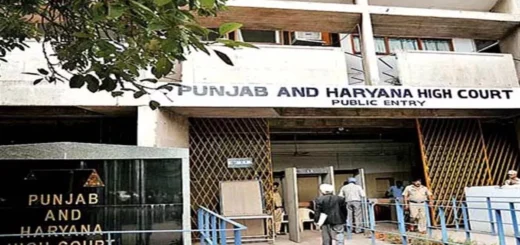The Allahabad High Court stated that a buyer’s possession under an executory sales contract is allowed but does not qualify for adverse possession claims.

The Allahabad High Court explained that a buyer who takes possession under an executory sales contract only has permissive possession and cannot claim that their possession is adverse. This means their possession is not the same as ownership from a completed sale. Justice Saurabh Shyam Shamshery noted that the situation of the petitioner reflects an “executory contract” because possession was given based on an “agreement to sell,” pending the fulfillment of other sale conditions. Only after these conditions are met does the sale occur, transferring the property title to the buyer.
Advocate Arvind Srivastava represented the Petitioner, while C.S.C. Arun Kumar Srivastava represented the Respondent. The case dates back to 1973 when the original Respondent’s father signed an agreement to sell a plot in Village Pakbara, District Moradabad, for Rs. 9,000. The petitioner paid Rs. 7,000 and received possession, with Rs. 2,000 due at the sale deed execution. The petitioner waited many years for the sale deed to be executed and finally filed a suit for specific performance in 2011. In the same year, the original Respondent filed a suit for permanent injunction against the petitioner.
The petitioner filed a case under Section 229-B of the U.P. Zamindari Abolition and Land Reforms Act, 1950, seeking a declaration of his rights over the disputed plot. He claimed to have possessed the plot for over 12 years, but the original respondent did not fulfill the sale agreement. This case was dismissed, and subsequent appeals to the Commissioner and Board of Revenue were also rejected. Upset by this, the petitioner went to the High Court. The court referred to Section 209(a) of the Act, which states that if possession is without the consent of the Bhumidhar, Sirdar, Asami, or Gram Sabha, a suit cannot be maintained under this section. If possession is permissive, the consequences outlined in Section 210 do not apply.
The Bench noted that the situation involved an “executory contract” since possession was given based on an “agreement to sell,” pending the completion of other sale conditions. They cited the Supreme Court case Achal Reddy Vs. Ramakrishana Reddiar and others, which stated that in an executory contract, the transferee’s possession until the conveyance is registered is considered permissive and on behalf of the owner. The Bench concluded that in this case, the purchaser’s possession was permissive, not adverse, and therefore could not argue otherwise. As a result, the Bench found no reason to challenge the decisions of the three Revenue Courts and dismissed the writ petition.
Cause Title: Shahid Hussain Respondent v. Board of Revenue U.P. and others [Neutral Citation 2024:AHC:182373]
Appearance:
Petitioner: Advocates Arvind Srivastava, Deepak Kumar Pandey, Krishna Kumar Singh, Rituvendra Singh Nagvanshi
Respondents: C.S.C. Arun Kumar Srivastava, Advocates Dharm Vir Jaiswal, Harsh Vikram, Manoj Kumar Sharma, Shri Ram Pandey









